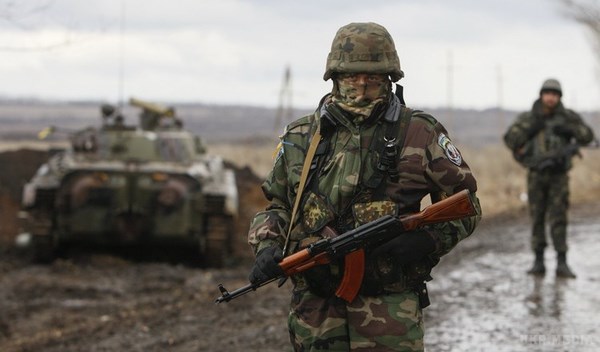Uncontrolled enclave near the borders of Ukraine: Is it the only way to solve the problem of the Donbas?
Despite the fact that the parties to the armed conflict in the Donbas - Ukraine, ORDLO (separatists-held territories), and Russia - recognize the inefficiency of the Minsk Agreements, and the lack of prospects from the beginning, neither party offers another format, knowing perfectly well that it awaits the same fate.
At the time, the representative of Ukraine to the political subgroup of the Trilateral Contact Group on the settlement of the situation in the Donbas, Academician Volodymyr Horbulin, proposed to expand the circle of participants in these negotiations. According to Horbulin it will increase the efficiency of the Minsk negotiation process and will give Ukraine more opportunities for diplomatic maneuvering.
The Permanent Representative of Russia to the EU, Vladimir Chizhov, commenting on the proposal by Ukraine to involve the US in the negotiations on the settlement of the conflict in eastern Ukraine, stated it is not against the participation of Washington. "In general, if all the others agree, we are not against US involvement in any way. Because we believe that potentially Washington has a lot of leverage over Kyiv. I say this not to belittle the role of France and Germany, and the role that they have played and continue to play. But I believe that the more pressure there is on Kyiv, the better the prospects are of implementing the Minsk Agreements," Chizhov said.
At the same time, Poland and the United Kingdom proposed a new format for negotiations on the settlement of the conflict in the Donbas. According to the Foreign Minister of Poland’s opinion, the Minsk format does not allow for peace in eastern Ukraine, so there is a need for a different formula and that is what was offered to Ukraine by Poland and the UK.
"We have hope for the opportunity to open a discussion on a new format, but the decision certainly should be made by the Foreign Minister of Ukraine, Pavlo Klimkin, President Poroshenko, and the Ukrainian government," he stressed.
However, examples of the lengthy negotiations to resolve the Karabakh, Abkhazian, and Transnistrian conflicts prove that all the talk about expanding the number of negotiators and a change in the format of the negotiations by attracting the UK and US indicate the dead-end nature of these proposals.
In an effort to find a peaceful settlement of the Transnistrian conflict, the international community has developed a formula of "5 + 2" (Moldova and Transnistria as parties to the conflict, Russia and Ukraine as the guarantor countries, OSCE as the mediator, and the EU and US as observers). It is noteworthy that the last negotiations on the Transnistrian conflict settlement in this format were held in February 2006.
The above listed conflicts have been unresolved for 20 years and exist in a "frozen" state.
Most likely, Russia chose such a scenario in an effort to create a permanent zone of instability and military tension in eastern Ukraine.
That's why if we want to avoid the existence of an uncontrolled enclave saturated with weapons and military equipment within Ukraine, we must recognize that the only way to solve this problem is through military action.
It is worth noting that making short-term forecasts for the situation in the Donbas is a thankless job.
We could of course predict that local deteriorations of the situation will be taking place, which will be connected with attempts by Russia to impose its own rules on Ukraine. By the end of 2017, it will become clear whether Kyiv will give in under the rough pressure exerted by Russia or whether it will maintain its own line with regard to the character of the war and the issue of the preservation of the territorial integrity of Ukraine.
The views expressed in this article are the author's own and do not necessarily reflect those of UAWire. The article has been published with the permission of the author.
